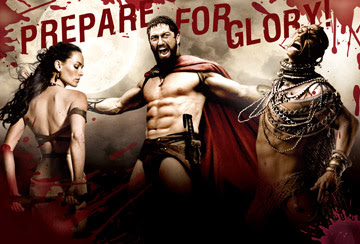International relations
- International relations theory
Political scientists
Comparative politics
Bureaucracy
- Street-level bureaucracy
Executive
Judiciary
Legislature
Electoral systems
Voting
Separation of powers, a term coined by French political Enlightenment thinker Baron de Montesquieu have pointed out that, regardless of whether it accomplishes this end, it also slows down the process of governing, promotes executive dictatorship and unaccountability, and tends to marginalize the legislature.
No democratic system exists with an absolute separation of powers or an absolute lack of separation of powers. Nonetheless, some systems are clearly founded on the principle of separation of powers, while others are clearly based on a mingling of powers.
Consent of the governed
Politics by country
Political economy
Political history
Political philosophy
Political science
Public administration
Separation of powers
Sovereignty
Theories of political behavior
Elections
Federalism
Forms of government
Ideology
Political campaign
Political parties Montesquieu's tripartite system
In democratic systems of governance, a continuum exists between "Presidential government" and "Parliamentary government". "Separation of powers" is a feature more inherent to presidential systems, whereas "fusion of powers" is characteristic of parliamentary ones. "Mixed systems" fall somewhere in between, usually near the midpoint; the most notable example of a mixed system is France's (current) Fifth Republic.
In fusion of powers, one branch (invariably the elected legislature) is supreme, and the other branches are subservient to it. In separation of powers, each branch is largely (although not necessarily entirely) independent of the other branches. Independent in this context means either that selection of each branch happens independently of the other branches or at least that each branch is not beholden to any of the others for its continued existence.
Accordingly, in a fusion of powers system such as that of the United Kingdom, first described as such by Walter Bagehot, the people elect the legislature, which in turn "creates" the executive. As Professor Cheryl Saunders writes, "...the intermixture of institutions [in the UK] is such that it is almost impossible to describe it as a separation of powers." of the executive; instead, the executive is chosen by other means (direct popular election, electoral college selection, etc.) In a parliamentary system, when the term of the legislature ends, so too may the tenure of the executive selected by that legislature. Although in a presidential system the executive's term may or may not coincide with the legislature's, her selection is technically independent of the legislature. However, when the executive's party controls the legislature, the executive often reaps the benefits of what is, in effect, a "fusion of powers". Such situations may thwart the constitutional goal or normal popular perception that the legislature is the more democratic branch or the one "closer to the people," reducing it to a virtual "consultative assembly," politically or procedurally unable—or unwilling—to hold the executive accountable in the event of blatant, even boldly admitted, "high crimes and misdemeanors."
Separation of powers vs. fusion of powers
Other branches
With the title Comptroller General, Auditor General or Comptroller and Auditor General, the European Union's Court of Auditors and Taiwan's Control Yuan are individual or bodies of independent ombudsmen. They are often independent of the other branches of government.
Their purpose is to audit government expenditure and general activity.
Auditory
Sun Yat Sen proposed a branch of government based on the Imperial examination system used in China. The "Examination Yuan" (Traditional Chinese: 考試院; pinyin: Kǎoshì Yuàn), as it is called in Taiwan, is in charge of validating the qualification of civil servants. This structure has been implemented in the Republic of China.
Civil examination
Costa Rica's Supreme Elections Tribunal is a branch of government that manages elections. Similar independent institutions exist in many other democratic countries, however they are not seen as a branch of government. In many countries, these are known as Electoral Commissions.
Electoral
Many philosophers and political scientists believe that democratic governments are created and constitutions exist to serve the people. The people have their own system of checks and balances by electing the legislative and executive branches. The government also draws its power directly from the people. Without the people, there is no government, just as without the legislative branch, there can be no judicial branch.
In the Constitution of Venezuela, the "citizen's power" is a formal branch of government, though it acts like auditors' branches in other jurisdictions.
See also:
Direct Democracy
Initiative
Referendum
Recall election The people
The federal executive of the United States is a very large bureaucracy, and due to civil service rules, most middle- and low-level government workers do not change when a new President is elected. (New high-level officials are usually appointed and must be confirmed by the Senate.) Moreover, semi-independent agencies (such as the Federal Reserve or the Federal Communications Commission) may be created within the executive by the legislature. These agencies exercise legally defined regulatory powers. High-level regulators are appointed by the President and confirmed by the legislature; they must follow the law and certain lawful executive orders. But they often sit for long, fixed terms and enjoy reasonable independence from other policy makers. Because of its importance to modern governance, the regulatory bureaucracy of the executive is sometimes referred to as a "fourth" branch of government.
This separation is even more pronounced in the United Kingdom. The separation was a prominent element of the Yes Minister comedy television series.
Independent executive agencies
U.S. contractors becoming a fourth branch of government by Scott Shane and Ron Nixon
The Fifth Branch of Government by Joe Wortham The press
- Street-level bureaucracy
 Germany: six branches
Germany: six branches Checks and balances
Checks and balances